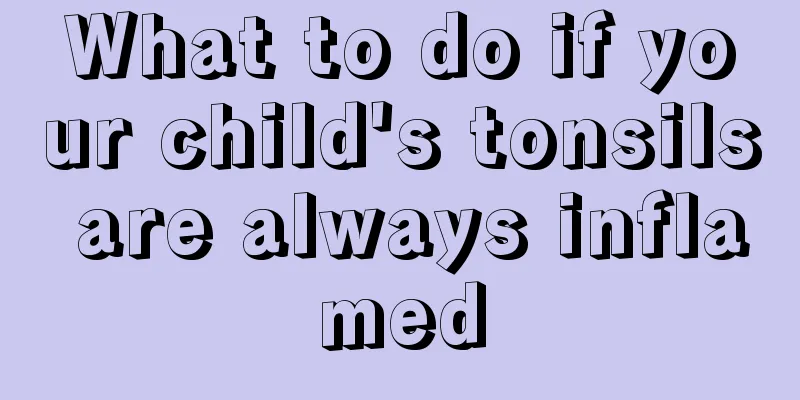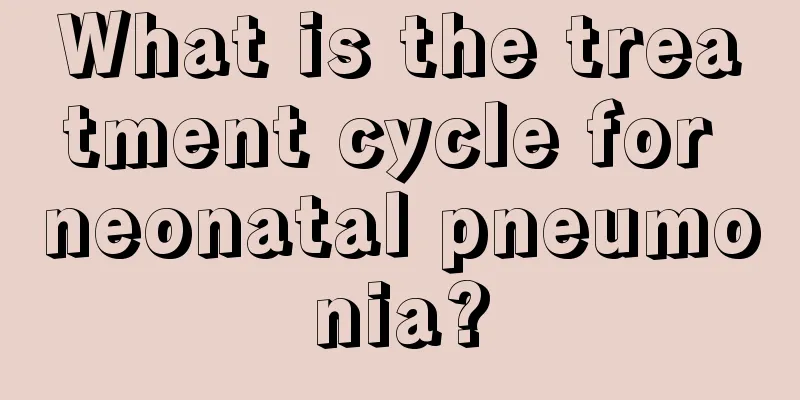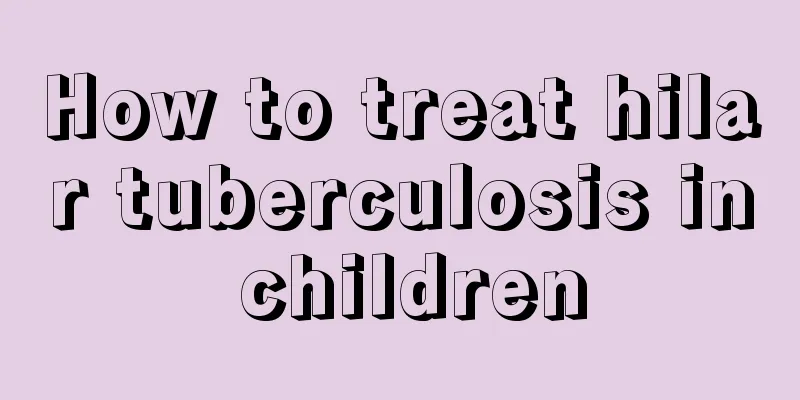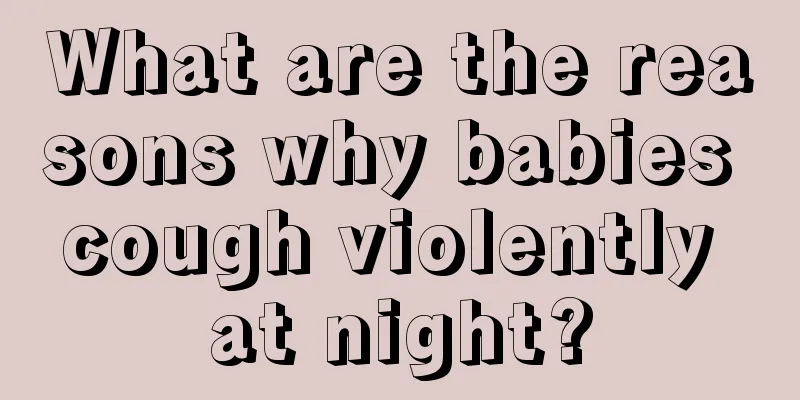What to do if your child's tonsils are always inflamed

|
It is particularly torturous for children to suffer from tonsils. They often cry and make a fuss, which also affects their parents. I don’t know what to do. Tonsils are generally infected by viruses or bacteria, which can easily cause symptoms such as swollen tonsils, redness, pain, fever, cough, etc. Severe cases may also cause other complications. Therefore, as parents, we must take measures to help children heal better to avoid pain. They should also eat a light diet, drink plenty of hot water, and eliminate toxins from the body, which can also be helpful. [Function of tonsils] The human pharynx is like an arched door, which is composed of two arched tissues. One is called the palatoglossal arch, and the other is called the palatoglossal arch, which span the two sides to form two pits. Under normal circumstances, a small amount of mucus is secreted, which contains white blood cells and macrophages. Once bacteria or viruses pass through here, they are adsorbed on the mucus and then swallowed and digested. Tonsils are now a recognized immune organ. Why does my baby’s tonsils always get inflamed? [Tonsils block germs] Tonsils serve as the "gateway" to the respiratory and digestive tracts. When bacteria and viruses come, the tonsils are the first to be affected. Once a person's resistance is reduced, bacteria and viruses will multiply here in large numbers, and the tonsils will become inflamed. Inflamed tonsils become congested, swollen, and festering. Many small pus plugs appear in the crypts of the tonsils, and in severe cases they are covered with pus. [4-6 years old is the peak period of tonsillitis] Generally speaking, children under the age of two will not develop tonsillitis, because the tonsils of children under the age of two have not fully matured and do not react strongly to external pathogenic microorganisms. As the tonsils, an immune organ, develop and mature, they begin to become inflamed after the age of two, with the peak period of tonsillitis being 4 to 6 years old. Therefore, parents should pay attention to their children's tonsillitis and avoid missing the opportunity for treatment, which may lead to chronic tonsillitis or even nephritis. How do you know if your baby’s tonsils are inflamed? [Acute tonsillitis] When children's tonsils are inflamed, the systemic infection symptoms are very obvious. The baby will show: high fever can reach 39℃~40℃, accompanied by chills, general fatigue, headache and body pain, loss of appetite, nausea and vomiting. When the doctor examined the pharynx, he found pus on the tonsils. This is the strongest evidence because systemic symptoms alone cannot distinguish it from other colds. [Chronic tonsillitis] Enlarged tonsils caused by chronic tonsillitis can cause breathing difficulties, especially during sleep, because the tongue relaxes and falls back, causing snoring like thunder. Over time, chronic hypoxia will affect growth and development. Chronic hypoxia will also affect the baby's intellectual development. If you encounter the above situation, parents should take your baby to see a doctor. The harm of tonsillitis to babies Both acute and chronic tonsillitis can cause a variety of complications and endanger children's health. Local complications include acute otitis media, rhinitis, sinusitis, pharyngitis, cervical lymphadenitis, peritonsillar abscess, etc. Common systemic complications include rheumatism, acute glomerulonephritis, sepsis, arthritis, skin diseases (such as psoriasis), myocarditis, bronchial asthma, etc. It can also cause severe acute nephritis. How to treat baby’s tonsillitis? 【Conservative treatment】Effective antibiotics, such as penicillin and cephalosporins, should be used for bacterial infections. Each attack should be treated with effective antibiotics for more than one week. Antiviral agents such as ribavirin and interferon are used in case of viral infection. [Surgical treatment] If the tonsils are severely enlarged, affecting the child's breathing, swallowing and pronunciation, causing snoring during sleep, affecting growth and development, and are severely inflamed 4-5 times a year, becoming lesions and causing damage to the heart and kidney functions, then surgical removal is necessary. (Generally speaking, it is best not to have your tonsils removed before the age of four.) |
<<: Pustules on children's heads
>>: Why does my four-year-old baby keep blinking?
Recommend
Treatment for yellow eyes in newborn babies
In fact, many newborns have relatively poor resis...
What should I do if my child has strabismus and amblyopia?
The baby's eye health is very important for t...
Baby's white blood cell count is low and he has repeated fever
If the baby has repeated fever due to inflammatio...
What is the best food for children with cold and cough?
Different people have different physiques, especi...
What are the tests for ADHD in children?
ADHD is a common chronic disease in children, but...
What should children eat in spring to grow taller
Everyone knows that spring is the season when eve...
What foods can children eat to grow taller?
If children can pay attention to their daily diet...
Brown urine in children
In our lives, many children have yellow or brown ...
What factors affect a girl's height?
Generally speaking, girls are shorter than boys, ...
The most effective way to treat jaundice
After a child is born, many vital signs need to b...
What should we pay attention to in newborn baby eye care
We all know that the baby's organs are not ye...
What to do if children have fever and cold
The occurrence of fever and cold in children will...
Are there any side effects of fluoride application to prevent dental caries in children?
Fluoride-containing substances are very effective...
Healthy weight loss methods for teenagers
I believe everyone knows the benefits of losing w...
The baby's forehead is protruding like a birthday star
The growth and development of infants is a matter...









